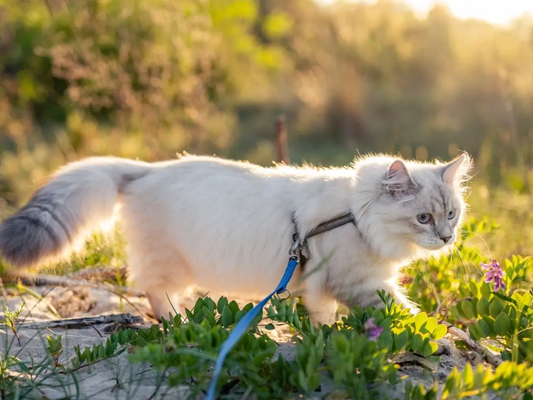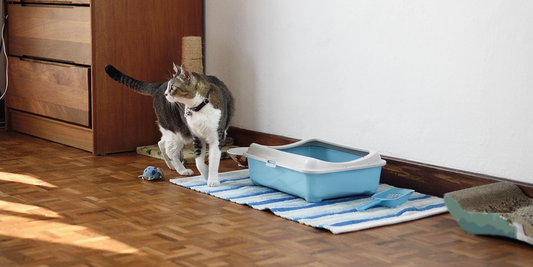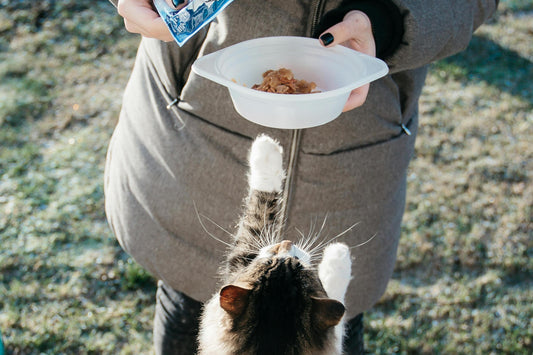In regions with cold climates, ensuring your beloved feline stays warm and comfortable is essential. As a responsible pet owner, understanding how cold is too cold for cats can help you safeguard their well-being during winter months. Moreover, integrating smart litter box solutions like automatic litter boxes can enhance their indoor environment. Let's explore the ideal temperature for your cat's comfort and how innovative litter box technology can elevate their living space.
Understanding Feline Comfort in Cold Weather
Is your cat shivering? Understanding feline physiology is crucial to discerning their tolerance to cold. Cats, like humans, have varying levels of cold tolerance influenced by factors such as breed, age, health, and coat density. While some breeds like Siberian cats boast thick fur that provides insulation against cold temperatures, others, such as Sphinx cats, have minimal fur and may require extra warmth.
Cats naturally seek warmth when temperatures drop. You might notice your furry friend curling up in cozy corners or seeking out sunny spots indoors. However, despite their fur coats, cats can still feel discomfort in chilly environments, especially if exposed to prolonged cold or drafts. So, how cold is too cold for cats?
Determining the Ideal Temperature for Cats
To ensure your cat's comfort, aim to maintain indoor temperatures between 70 to 80 degrees Fahrenheit (21 to 27 degrees Celsius). This range provides a cozy environment that mimics their natural body temperature, allowing them to relax and thrive. When temperatures plummet below this range, cats may exhibit signs of discomfort, such as shivering, seeking warmth, or even decreased activity levels.
Signs Your Cat Is Feeling Cold
- Shivering or trembling
- Seeking warm places to rest
- Curling up tightly to conserve body heat
- Cold ears, paws, or tail
- Lethargy or decreased activity
Observing these signs indicates that your cat may be feeling the cold and requires adjustments to their environment for optimal comfort.
Enhancing Feline Comfort with Smart Litter Box Solutions
While ensuring a warm indoor environment is crucial, integrating smart litter box solutions can further enhance your cat's comfort and well-being. Smart litter boxes, such as automatic litter boxes, offer convenience, cleanliness, and odor control, creating a hygienic space for your feline friend.
Benefits of Smart Litter Boxes
- Convenience: Automated cleaning cycles minimize manual scooping, saving time and effort.
- Hygiene: Self-cleaning mechanisms reduce odor and maintain a clean litter area, promoting feline health.
- Privacy: Enclosed designs provide cats with a secluded space for elimination, enhancing their sense of security.
- Monitoring: Some smart litter boxes feature sensors to track your cat's litter habits, enabling early detection of health issues.
By incorporating a smart litter box into your cat's environment, you not only simplify litter maintenance but also provide them with a comfortable and hygienic space for their essential needs.
Frequently Asked Questions (FAQs)
Q: Can cats get frostbite in cold weather? A: Yes, cats are susceptible to frostbite, especially on their ears, paws, and tail. Ensure they have access to warm shelter during freezing temperatures.
Q: Should I trim my cat's fur in winter to prevent overheating? A: No, cats' fur provides insulation against both cold and heat. Avoid trimming their fur excessively, as it can compromise their ability to regulate body temperature.
Q: How can I create a warm spot for my outdoor cat in winter? A: Provide insulated shelters filled with blankets or straw, away from wind and moisture. Consider using heated pads designed for outdoor use.
Q: Can I leave my cat alone in a cold house during winter vacations? A: It's not advisable to leave your cat alone in a cold house for extended periods. Arrange for a pet sitter or boarding facility to ensure their comfort and well-being.
Q: Are there heated beds available for cats? A: Yes, heated beds designed for cats are available, providing cozy warmth for chilly nights without posing fire hazards.
Q: How often should I clean my cat's litter box? A: Aim to scoop waste and clumps daily and perform a complete litter change at least once a week to maintain cleanliness and prevent odor buildup.
Conclusion
Understanding how cold is too cold for cats is essential for ensuring your furry companion's well-being, particularly in colder climates. By maintaining a warm indoor environment and integrating smart litter box solutions, you can create a comfortable and hygienic space that promotes your cat's health and happiness throughout the year.
Remember to observe your cat's behavior for signs of discomfort during cold weather and make necessary adjustments to their environment. With proper care and attention, you can provide your feline friend with a cozy sanctuary where they can thrive regardless of the temperature outside.








